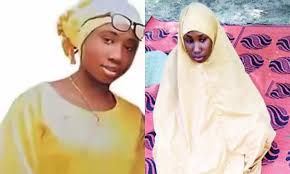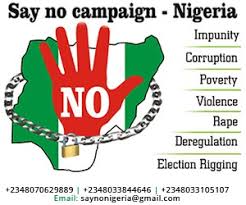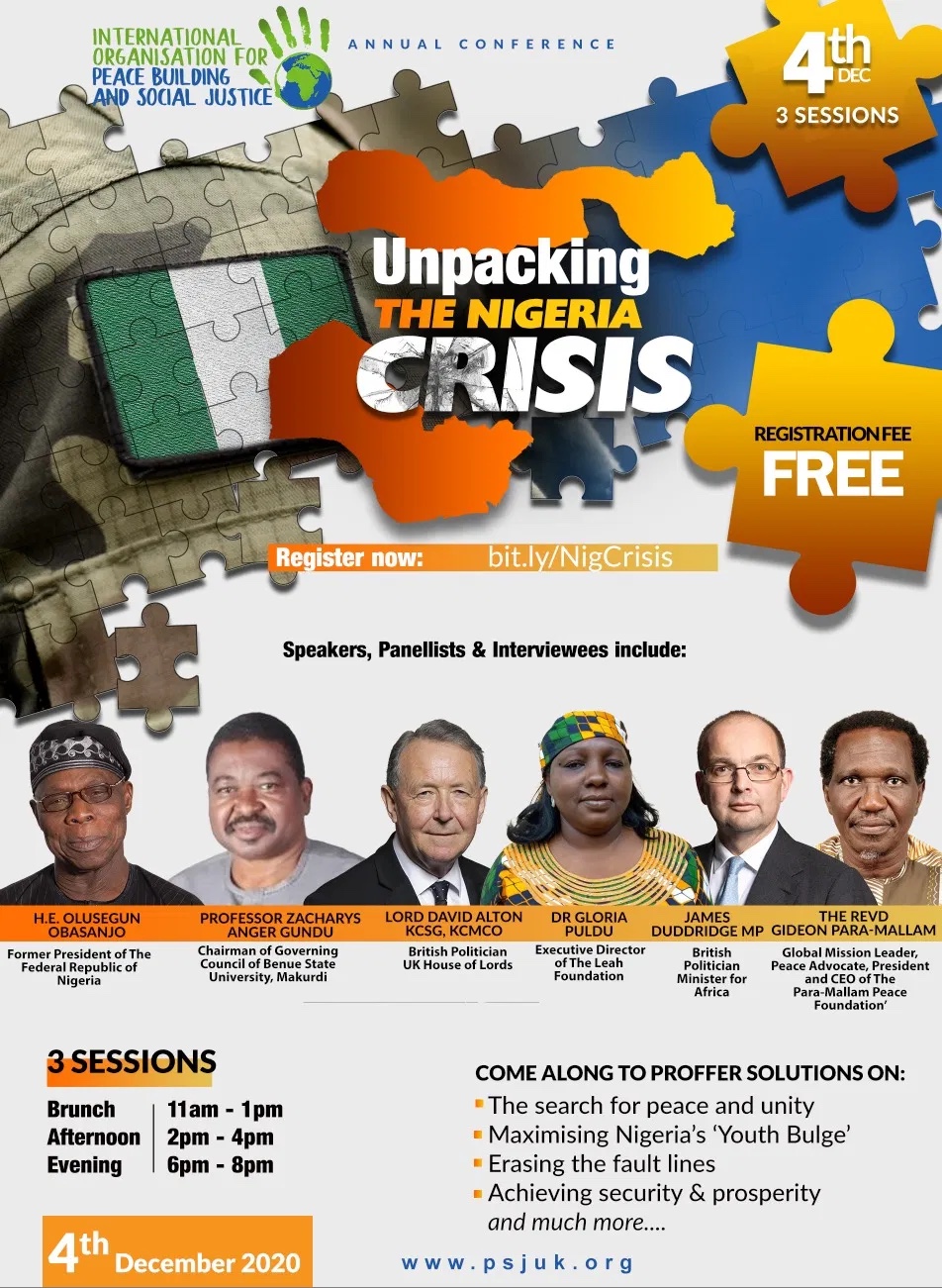
U.K. says “We will continue to engage with the Government of Nigeria in support of urgent action to secure the return of Leah Sharibu and all abductees” and responds to questions about organised crime, kidnappings, modern day slavery, and cocaine.
Baroness Sugg, the Foreign, Commonwealth and Development Office, has provided the following answer to your written parliamentary question (HL10037):
Question by Lord Alton of Liverpool
To ask Her Majesty’s Government (1) what assessment they have made of the effectiveness of the Nigeria Countering Organised Crime and Corruption programme, (2) how much the programme cost, and (3) what indicators have been used to assess its success or failure. (HL10037)
Tabled on: 09 November 2020
Answer:
Baroness Sugg:
The UK is committed to tackling organised crime and corruption around the world. As part of this work, the UK Government, through the National Crime Agency, delivers a Countering Organised Crime and Corruption programme in Nigeria. The programme provides mentoring and capacity building for units of the Nigerian Police Force to improve border security and anti-kidnap capacity, and to respond to organised crime groups in Nigeria. The programme budget was £3.1 million for 2019/20.
The Nigeria Countering Organised Crime and Corruption programme is evaluated each year. External consultants have been used to evaluate the programme in some years. It was given a grade A rating for meeting expectations in 2019/20. It was also assessed that the programme represents good value for money and that the project successfully integrates gender and equality issues into delivery. All UK programmes are provided in adherence with the UK Government’s Overseas Security and Justice Assistance guidance. We will continue to support police reform in Nigeria, working with the Nigerian Government and international and civil society partners to improve its transparency and accountability, in line with its human rights obligations.
Date and time of answer: 18 Nov 2020 at 12:56.
Baroness Sugg, the Foreign, Commonwealth and Development Office, has provided the following answer to your written parliamentary question (HL10148):
Question by Lord Alton of Liverpool
To ask Her Majesty’s Government what assessment they have made of (1) the effectiveness of the Nigeria: Countering Organised Crime and Corruption programme in reducing kidnappings and abductions, and (2) how the programme has been used to assist abducted girls, including Leah Sharibu, subjected to sexual violence. (HL10148)
Tabled on: 10 November 2020
This question was grouped with the following question(s) for answer:
1. To ask Her Majesty’s Government what capacity building of Anti-Kidnap Coordination Units took place as a result of the Nigeria Countering Organised Crime and Corruption programme; how was this capacity built; and how the programme continues to be used in achieving its declared objectives of increasing public confidence in Nigeria’s law enforcement capabilities, and reducing harm to hostages and victims (HL10038)
Tabled on: 09 November 2020
Answer:
Baroness Sugg:
The Countering Organised Crime and Corruption programme in Nigeria provides mentoring and capacity building for units of the Nigerian Police Force to improve border security and anti-kidnap capacity, and respond to organised crime groups in Nigeria. The anti-kidnap capacity building features training for Anti-Kidnap Senior Investigation Officers that meets international standards and embeds human rights compliance including on digital forensics handling to enhance evidence collection and negotiation skills for female officers. This helps anti-kidnap coordination units reduce the harm to kidnap victims by seeking to reduce the longevity of capture and hold those responsible to account. The programme also provides mentoring to officers of the Nigerian National Agency for the Prohibition in Trafficking of Persons to help them counter the trafficking of women and girls. Kidnappings have increased in recent years in Nigeria so this work remains vital in helping to tackle the threat. Effectively tackling and reducing organised crime in Nigeria, including kidnaps, will improve domestic and international confidence, and support increased trade and investment in Nigeria, improving Nigeria’s potential to achieve long-term sustainable economic growth.
This specific programme is designed to help counter criminal, rather than terrorist, activity. The Government has offered and provided separate support in response to the abduction of people by terrorist groups such as Boko Haram and Islamic State West Africa (ISWA), including Leah Sharibu. Following the attack on Leah’s school in Dapchi, the then Foreign Secretary spoke to the Nigerian Vice President to offer UK assistance in the recovery of the missing girls. The UK Government has repeatedly called for the release of all those abducted by Boko Haram and ISWA, including Leah Sharibu, and remains committed to supporting the Nigerian Government to secure their release. The Prime Minister’s former Special Envoy for Freedom of Religion or Belief met Leah’s mother in February and reaffirmed the UK Government’s support to Nigerian Government efforts to tackle terrorism. In March, the Minister for Africa reiterated to Parliament the UK Government’s condemnation of all attacks by terrorist groups in North East Nigeria. We will continue to engage with the Government of Nigeria in support of urgent action to secure the return of Leah Sharibu and all abductees.
Date and time of answer: 18 Nov 2020 at 12:54. Baroness Sugg, the Foreign, Commonwealth and Development Office, has provided the following answer to your written parliamentary question (HL10149):
Question by Lord Alton of Liverpool
To ask Her Majesty’s Government what assessment they have made of the Nigeria: Countering Organised Crime and Corruption programme in reducing cocaine trafficking and organised crime in Nigeria; and what assessment they have made of Nigeria remaining in the top five source countries for victims of modern slavery and human trafficking to the UK. (HL10149)
Tabled on: 10 November 2020
Answer:
Baroness Sugg:
The Countering Organised Crime and Corruption programme in Nigeria, led by the National Crime Agency, provides mentoring and capacity-building for units of the Nigerian Police Force to improve border security and anti-kidnap capacity and respond to organised crime groups in Nigeria. The includes mentoring to the Economic and Financial Crimes Commission and the Nigerian Drug Law Enforcement Agency on countering narcotics trafficking. This has helped lead to the seizure of 101 kilos of cocaine by the Nigerian authorities in the past three years from Murtala Mohammed International Airport in Lagos.
The Government condemns all incidents of modern slavery. In 2017, at the UN General Assembly, the then Prime Minister was joined by other world leaders to launch the Call to Action to End Forced Labour, Modern Slavery and Human Trafficking. Since then, the Government has remained focused on implementing the Call to Action and encouraging member states to devise national action plans and deliver on their own commitments. Nigeria is no longer in the top 5 source countries for victims of modern slavery and human trafficking to the UK, and was ranked 9th in 2019 with 259 individuals referred to the UK National Referral Mechanism. Tackling modern slavery in countries in which we see high numbers trafficked to the UK, including Nigeria, remains a priority. To help tackle the issue, at the UN General Assembly in 2018, the UK co-hosted a modern slavery event with countries including Nigeria. The event incorporated private sector participants who emphasised the critical role of businesses in eliminating modern slavery from supply chains. We run the Stamping Out Slavery in Nigeria programme, which aims to strengthen victim support systems, raise awareness of the dangers of modern slavery, address the social norms that facilitate it and strengthen the coalition of actors tackling modern slavery. Additionally, through the UK’s Modern Slavery Fund, we are providing £5 million to a programme in Nigeria to help stop people falling into slavery, catch offenders and support victims.
TDate and time of answer: 18 Nov 2020 at 12:51.



